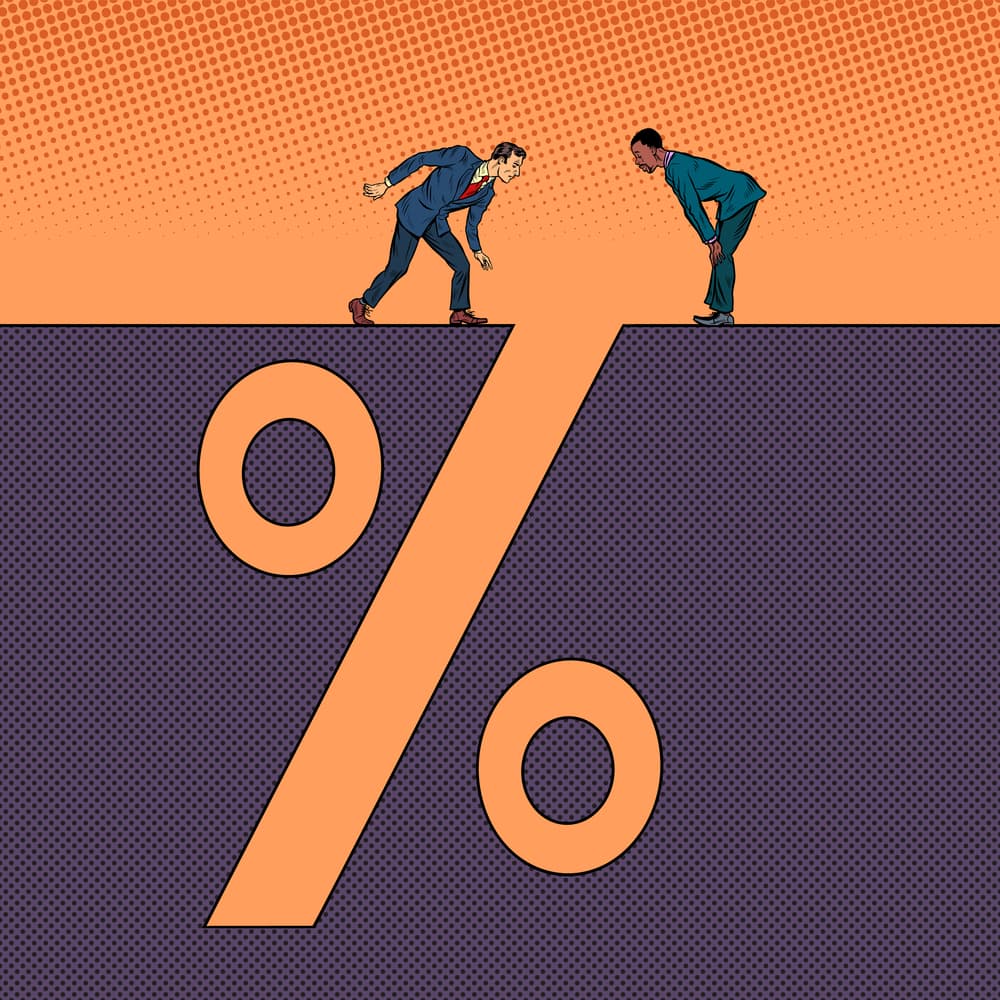Heavy Equipment Financing Explained
Buying new or used heavy equipment—such as construction equipment, agricultural equipment, or even logging equipment—can be cost-prohibitive for many newer companies looking to get started or expand their business. Fortunately, getting the equipment your team needs to serve clients is possible thanks to heavy equipment financing.
In this helpful guide, we’re going to answer your equipment financing questions to cover everything you need to know to get started on the path of financing your company’s heavy equipment, including:
What is heavy equipment financing?
Heavy equipment financing is the process of obtaining a business loan needed to purchase equipment to avoid having to pay for it completely upfront. This can include borrowing the funds to purchase construction equipment, logging machinery, or agricultural heavy equipment.
Heavy equipment financing can help companies or individuals purchase new or used equipment necessary to perform heavy-duty tasks without the burden of having to drain savings to do so.

The right financing agreement lets you pay as you earn using heavy equipment.
“How does financing heavy equipment work?"
Heavy equipment financing is the act of paying for heavy equipment with a business loan that is paid back with interest over several years. The loan term, interest rate, and other stipulations of the loan contract are subject to various factors. Still, heavy equipment loans are among some of the most attainable business loans due to the equipment itself acting as collateral.
For those who'd like a heavy equipment loan, there are a few different loan styles to consider.
1. Installment Agreement
Instead of paying the full cost all at once, payments can be broken up into pre-determined installments—usually monthly. These are typically zero-interest dealer-provided payment plans used to entice new buyers to do business with them. If you can land an installment agreement, this may be one of your most attractive heavy equipment financing options.
2. Lease-to-Own
Though lease agreements are not always tied to financing (most leases act as rental agreements), many may offer an option to buy the heavy equipment at the end of the contract if desired.
Fair Market Value Lease vs. a $1 Buyout Lease
If your company decides upon a lease-to-own option, you’ll likely choose between a Fair Market Value (FMV) lease or a $1 Buyout lease.
Fair Market Value (FMV) Lease
For a Fair Market Value (FMV) lease arrangement, your company would lease the equipment with an option to buy the equipment at the end of the term of the lease. At that point, you would agree to pay the fair market value of the equipment.
$1 Buyout Lease
If you opted for a $1 Buyout lease, you would pay a much higher monthly payment to lease the equipment, but only pay only $1 to purchase the equipment at the end of the lease term. $1 Buyout lease agreements are almost always alternative financing options that allow companies to claim the price of a lease as a business expense to lower your tax liability.
3. Line of Credit
Another financing option includes a financing institution extending a line of credit— much like a credit card. A key difference, however, is that interest on new purchases starts straight away, so there’s no “grace period” to enjoy.
There are a variety of financing institutions to choose from—all with their pros and cons.
Conventional Banks
Most conventional banks will offer business loans to purchase heavy equipment. Utilizing these can be a great way to simplify your company’s finances if you already have accounts with such a bank. While convenient, conventional bank financing may not be as competitive in comparison to other sources due to their lack of specialization—as a lack of industry knowledge may result in higher rates to mitigate risk. Conventional banks are also more likely to have added fees to fund their steeper overhead costs.
Credit Unions
Because they are not-for-profit institutions, credit unions may be great providers of affordable heavy equipment financing. Credit unions tend to have more competitive rates and reduced fees. Still, due to their lack of industry specialization, they still may not have the most competitive rates—again, simply to mitigate risk on their end.
Specialized Financing Companies
Several companies specialize in heavy equipment financing—even for borrowers with less-than-stellar credit. Their specialization means they not only understand and can account for specific risks, but they also understand the challenges and needs of heavy equipment buyers. This understanding may result in lower rates, enhanced customer support, and specialized programs.
Heavy Equipment Dealer Financing
Many heavy equipment dealerships may offer financing for their customers—sometimes called a “buy here, pay here” model. Dealer financing, much like financing offered in the automotive industry, can be a bit of a mixed bag with terms and rates largely dependent on the dealer. Like with a car or truck, some dealers may offer lower list prices while recouping the cost in higher interest rates. Others may offer incredible financing options to earn your business. It all depends on the dealership!
“Where should I get financing quotes for my heavy equipment purchases?”
So, should you request a financing quote from a bank, credit union, financing company, or dealership? The answer: all of the above! Just as you’d get multiple rate quotes for something like a mortgage, some items of heavy equipment can cost as much as a house, so it only makes sense to shop around for the best rate and terms.
Just make sure to carefully study the terms of your heavy equipment financing contract.
A heavy equipment financing contract is a document that spells out what is expected from both the borrower (you) and the lender (whoever is providing the equipment loan). Various concepts will be outlined on the contract including:
Down Payment
The down payment for a heavy equipment loan is how much money you’re putting “down” before paying for the rest of the equipment with borrowed money—aka financing. A solid down payment should be between 10% and 20% of the equipment’s overall value. A higher down payment not only means less paid by you in interest but may also result in a better rate due to you having more equity in the equipment. Some financing institutions may offer zero-down deals, though usually with a higher interest rate to mitigate risk.
Interest Rate
Your interest rate is essentially the cost of borrowing the money to purchase the equipment—usually reflected in a percentage of the price of the equipment. Heavy equipment financing companies typically charge a fixed interest rate that’s between 2% to 20% of the overall loan—depending on various factors. Anything higher than 30% may be too difficult to pay off on time and should probably be avoided.
Loan Term
Your loan term is a projected amount of time it will take for you to fully pay back how much you have borrowed as well as all interest and associated fees. The loan term you choose will impact how much you pay every month. A shorter loan term will result in a higher monthly payment and a longer loan term will result in a lower monthly payment. Though more affordable per month, longer loan terms may result in a higher amount of interest and fees paid over the life of the loan.
Origination Fees
Origination fees are essentially processing fees to cover the expenses of a loan. To keep costs down and competitive, carefully examine such fees and don’t be afraid to ask questions—such as the necessity of the fees and if they can be waived.
Soft Costs
Soft costs are additional costs such as taxes or delivery fees, which some companies are willing to help finance. Some soft costs may be able to be rolled into your monthly financing payment, so make sure to ask your financing source if this is possible.
Fixed-Rate Financing vs. Adjustable Financing Rates
When financing your heavy equipment, you can usually opt for a fixed-rate loan or an adjustable-rate loan.
- Fixed-rate loans in which the principal paid (the amount you’re paying back), as well as the interest rate, do not change throughout the loan term.
- Adjustable-rate loans are financing terms with a less-costly introductory period that increases later during the loan term.
Though most borrowers will opt for a fixed-rate loan due to their predictable nature, adjustment rate loans may be a good option for newer companies with lower initial equipment budgets.
When it comes to equipment financing, companies with bad credit or little credit history tend to experience higher rates. Companies with good credit can typically enjoy lower interest rates and can borrow against pricier pieces of heavy equipment.
With that said, companies and individuals with lower credit scores may still be able to finance their heavy equipment. Many companies specialize in financing clients with bad credit, and many “high-risk” companies have fully recovered using financing companies.
 Don't let a bad credit score create a rift between you and the heavy equipment financing you need.
Don't let a bad credit score create a rift between you and the heavy equipment financing you need.
“How long can you finance construction equipment?”
Heavy equipment loan terms can run anywhere from 3 to 10 years. Different financing periods will depend on anything from the type of equipment to the size of the down payment. Shorter financing periods can help you save money on interest, while a longer “note” may free up more immediate funds for companies. On average, most heavy equipment financing periods are somewhere right down the middle—about 7 years.
“What credit score do you need to buy heavy equipment?”
To obtain an affordable rate for a heavy equipment loan, a decent rule of thumb is to have a credit score of at least 620. However, if you are looking to finance your heavy equipment through a lease (such as a Fair Market Value or $1 Buyout), your credit score will likely need to be higher.
“Is it hard to finance heavy equipment?”
While one would think it would be very difficult to finance heavy equipment, heavy equipment loans are among the easiest to obtain due to the collateral inherent in the loan. Unlike many business loans, most heavy equipment loans simply use the equipment as collateral—able to recoup the equipment if the borrower fails to make their monthly payments. This ease of collateral makes it easier to obtain affordable financing for heavy equipment.
"Are there any tax deductions for heavy equipment financing?"
Heavy equipment financing is typically tax-deductible. IRS Section 179 permits up to $500,000 to be claimed for financed equipment, which can be a lifesaver for smaller businesses. Be sure to always consult a professional tax service before making any tax-related determinations.
"Should I finance my heavy equipment even if I can afford to pay cash?"
Even if your company has the necessary funds on hand to buy heavy equipment without financing, it may still be a good strategic business move to do so. Not only can financing your equipment allow you to allocate existing funds to more pressing endeavors that may be more difficult to finance (such as a down payment on a location mortgage, hiring new personnel, etc.), but regularly paying down such business loans can help your company’s credit rating. A great credit rating can result in lower interest rates on financed purchases going forward.
"How much does it cost to finance a bulldozer?"
You can finance nearly any type of heavy equipment, from combine harvesters to log skidders for sale, but bulldozers are one of the commonly financed pieces of equipment in today’s market, so we’ll use it as an example.
Financing a bulldozer, like any other piece of equipment, largely depends on your credit, but monthly payments for a five-year loan term contract worth $100,000 might be around:
- Strong Credit – $2,300 or less
- Good Credit – $2,475
- Average Credit – $2,875
- Bad Credit – $3,000
Source: Lendio
Needing Heavy Equipment Financing?
If you need heavy equipment financing, connect with LenCo Capital to secure financing to purchase any heavy equipment you need.